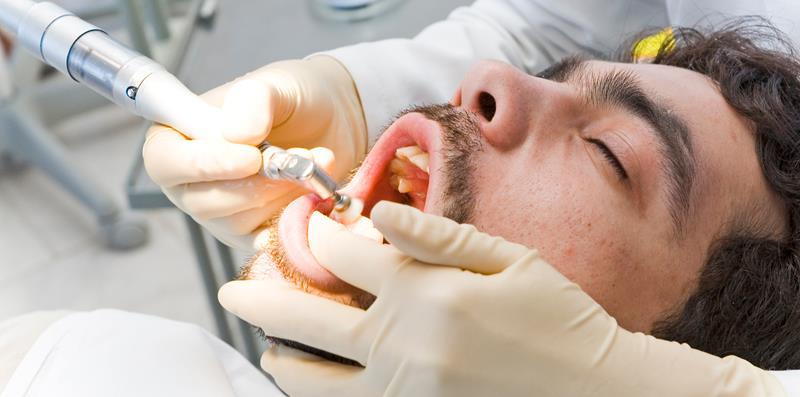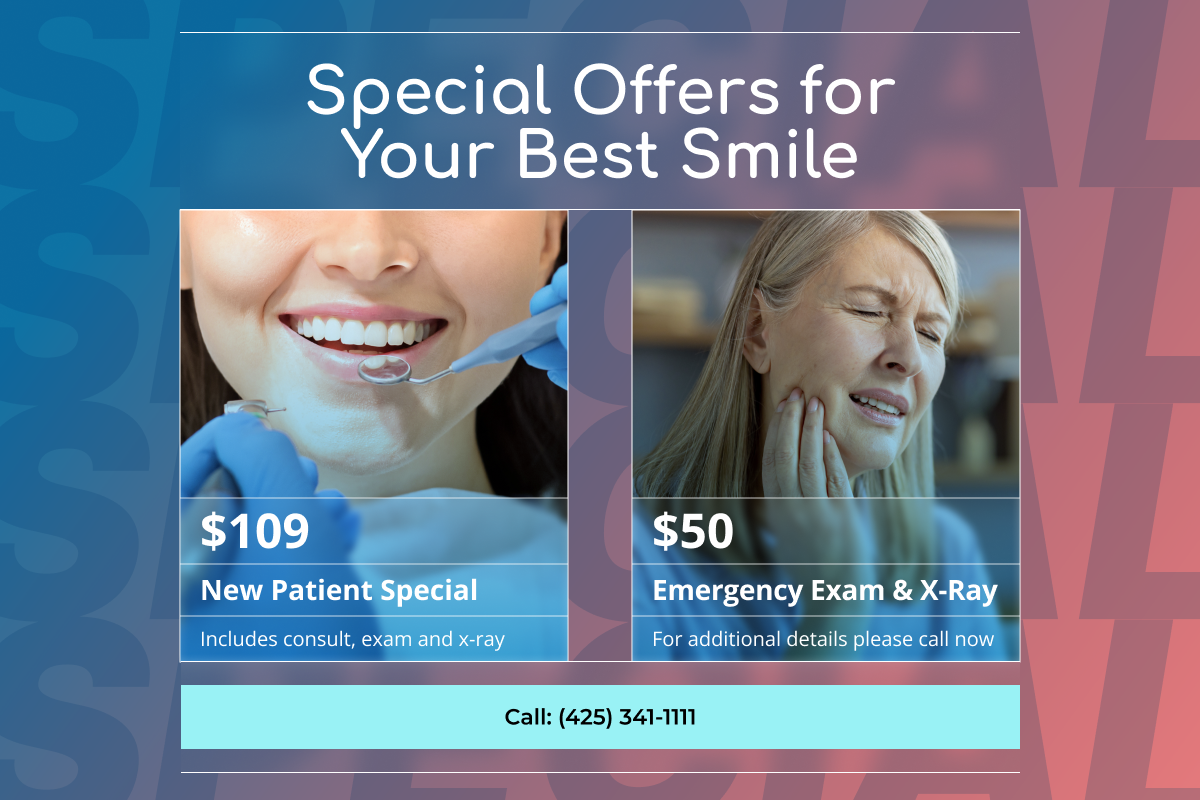Do You Know the Risks of Porcelain Veneer Treatment?
While porcelain veneers are a safe and effective way to enhance the appearance of your smile, they do come with some potential risks that you should be aware of before deciding to get them.
Our top-rated Everett, WA, dentist walks you through the risks, so you can make an informed decision about your next cosmetic dental treatment. Schedule a consultation with us today by calling (425) 341-1111.

Porcelain Veneer Risks
Tooth Sensitivity
One of the most common side effects of porcelain veneers is tooth sensitivity. This can occur when the thin layer of enamel on the front of the tooth is removed to make room for the veneer. It can expose the dentin, which is the sensitive layer of the tooth that contains nerve endings. While tooth sensitivity is usually temporary and can be managed with over-the-counter pain relievers or desensitizing toothpaste, it can be uncomfortable.
Damage to Natural Teeth
Another potential risk of porcelain veneers is damage to your natural teeth. When the veneer is applied, the dentist will need to remove a small amount of enamel from the front of your teeth. This can weaken the tooth and make it more susceptible to damage, such as cracking or chipping. In some cases, the veneer may also come loose and damage the natural tooth underneath.
Potential for Non-Ideal Fit
There’s a slight chance that the dental veneers may not fit perfectly. They might feel uncomfortable, alter your bite, or cause speech issues, which would require further dental work.
Gum Irritation
Porcelain veneers can also cause gum irritation or inflammation, particularly if the veneer isn’t properly fitted or if there’s a buildup of bacteria around the gum line. This can cause redness, swelling, and bleeding, leading to more serious gum disease if left untreated.
Irreversible
To prepare your teeth for veneers, your dentist must remove a small amount of enamel from the tooth’s surface. This process is irreversible, meaning your teeth will always need to be protected with veneers or another type of dental restoration, such as dental bonding or composite resin veneers.
Infection
There’s a risk of infection with porcelain veneers. Infection can occur if bacteria get underneath the veneer and infect the tooth or gums. Symptoms of an infection may include pain, swelling, redness around the affected tooth, and, in severe cases, a fever. If you experience any of these symptoms, it’s important to contact your dentist right away.

Frequently Asked Questions
When properly cared for, porcelain veneers themselves do not increase the risk of tooth decay or gum disease. However, it’s essential to maintain good oral hygiene practices and regular dental check-ups to prevent any issues with the underlying teeth and gums.
Are there any risks of allergic reactions or sensitivity to the materials used in porcelain veneers?
Allergic reactions or sensitivity to the materials used in porcelain veneers are rare. Dentists typically use biocompatible materials and allergy testing is often conducted before the procedure to minimize the risk of adverse reactions.
Poorly fitting or improperly bonded veneers can lead to issues such as discomfort, sensitivity, increased risk of tooth decay, and compromised aesthetics. It’s crucial to choose an experienced dentist who can ensure proper fitting and bonding of the veneers.
Make an Informed Decision With Our Everett Dentist!
While traditional porcelain veneers can provide a beautiful and long-lasting solution for improving the appearance of your teeth, they do come with some potential risks. It’s important to discuss these risks with our dentist before deciding to get porcelain veneers and to make sure you choose a qualified and experienced dental professional to perform the procedure.
Contact our Everett dental office today to schedule a porcelain veneer consultation or if your veneers need to be replaced. We welcome patients in Edmonds, Marysville, Lynnwood, and Silver Firs, WA.


